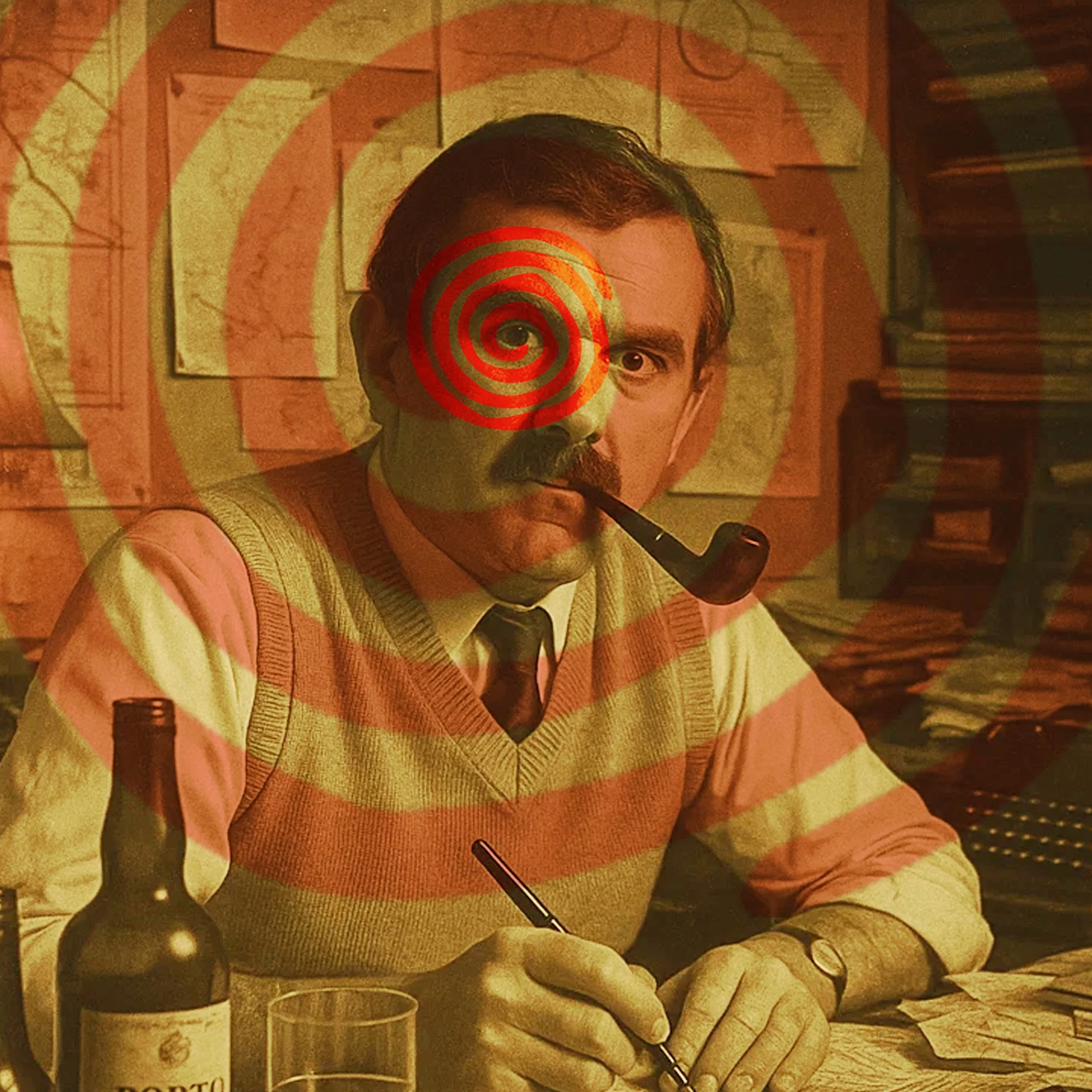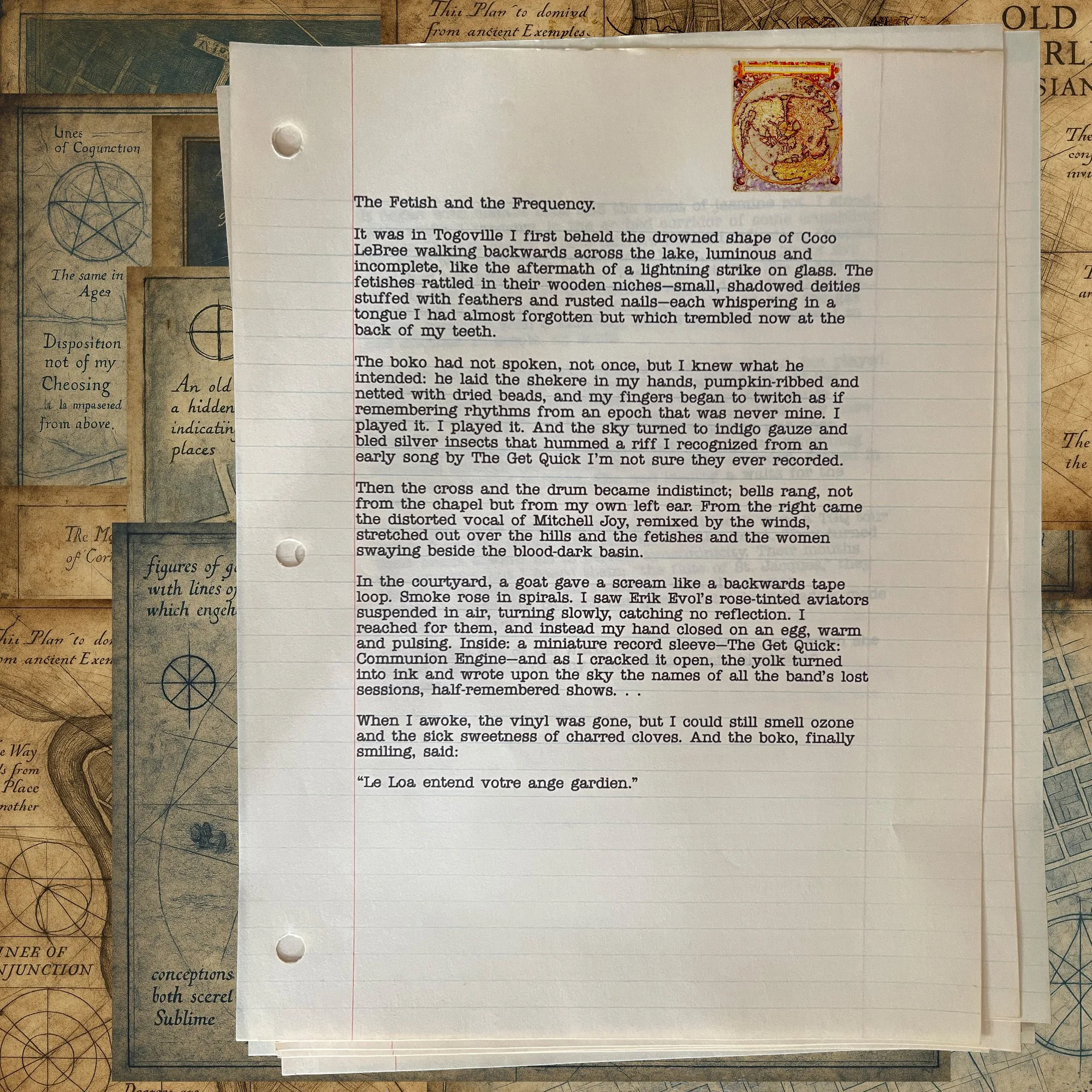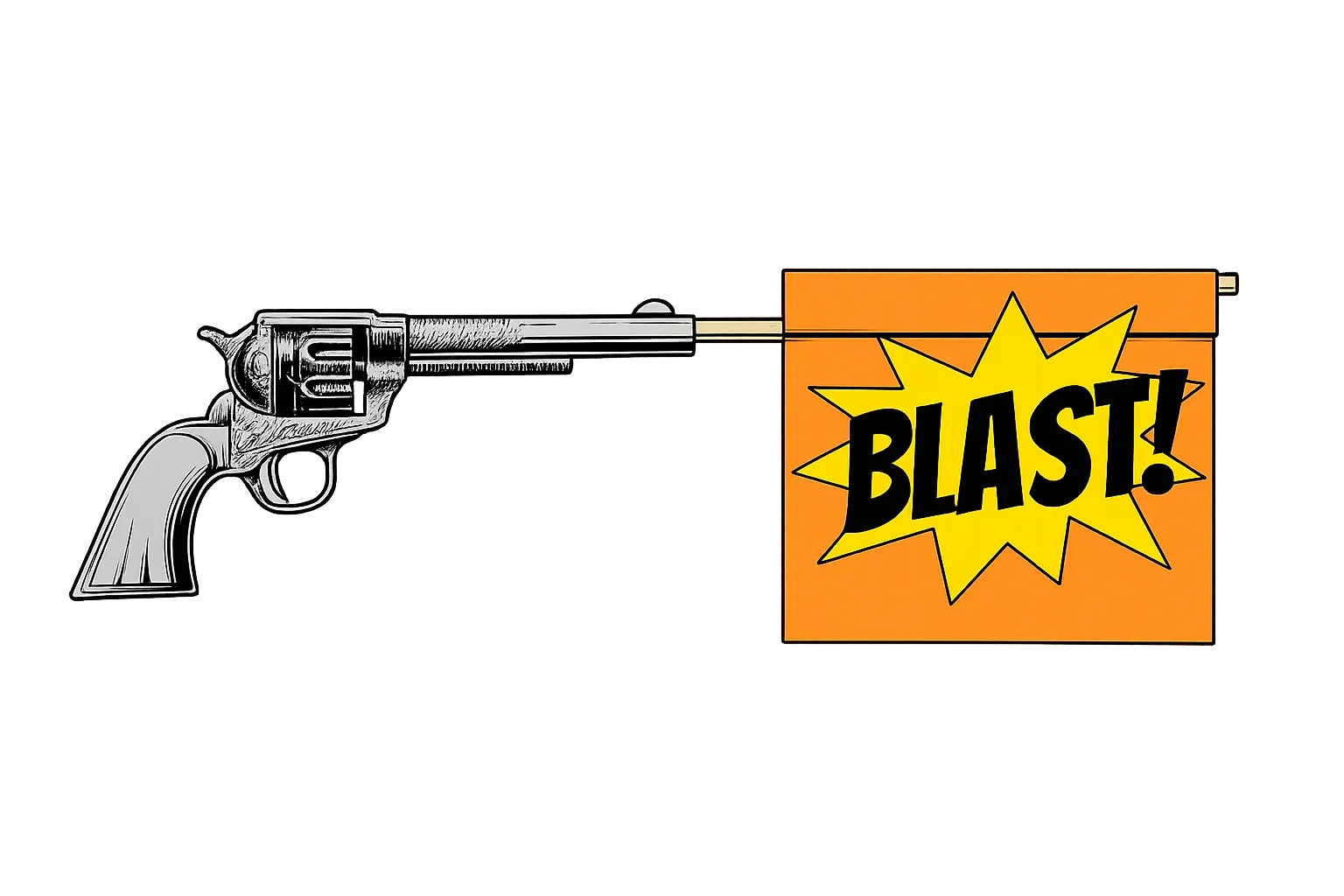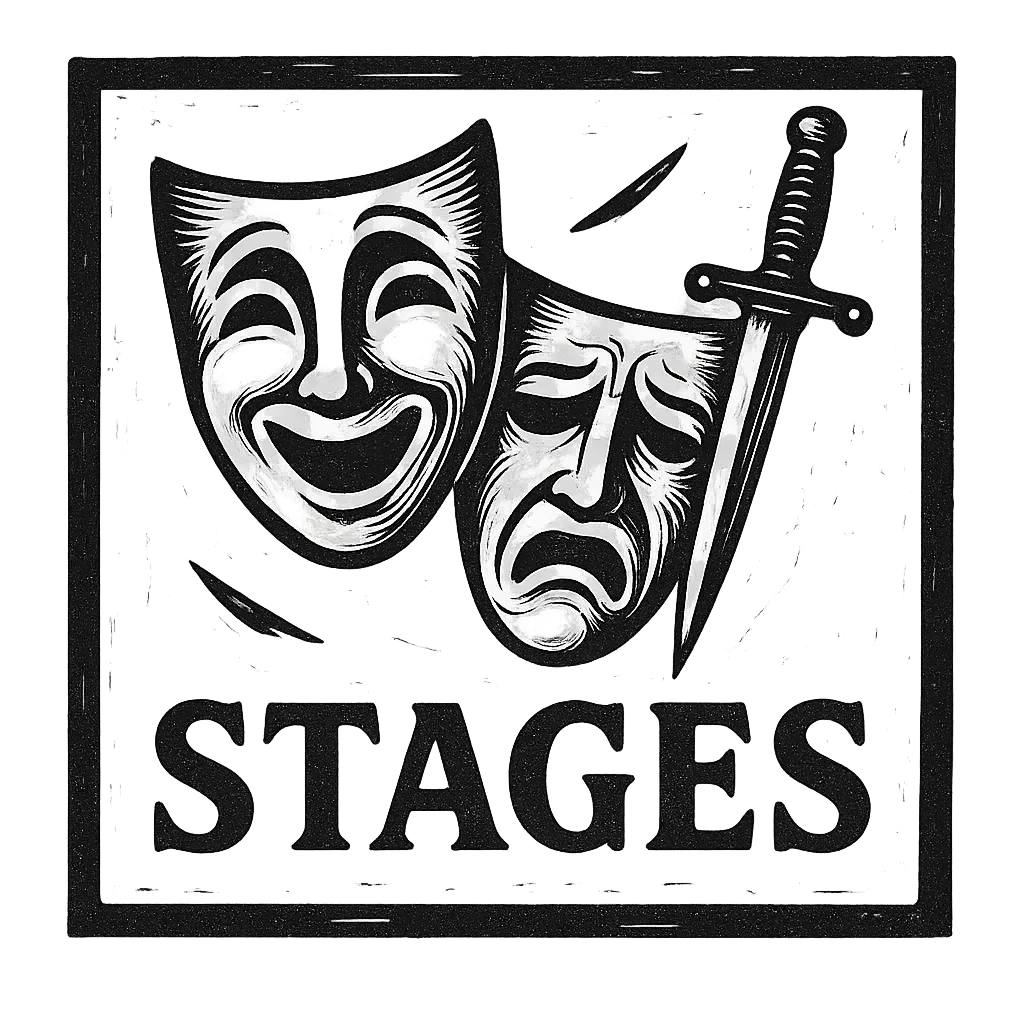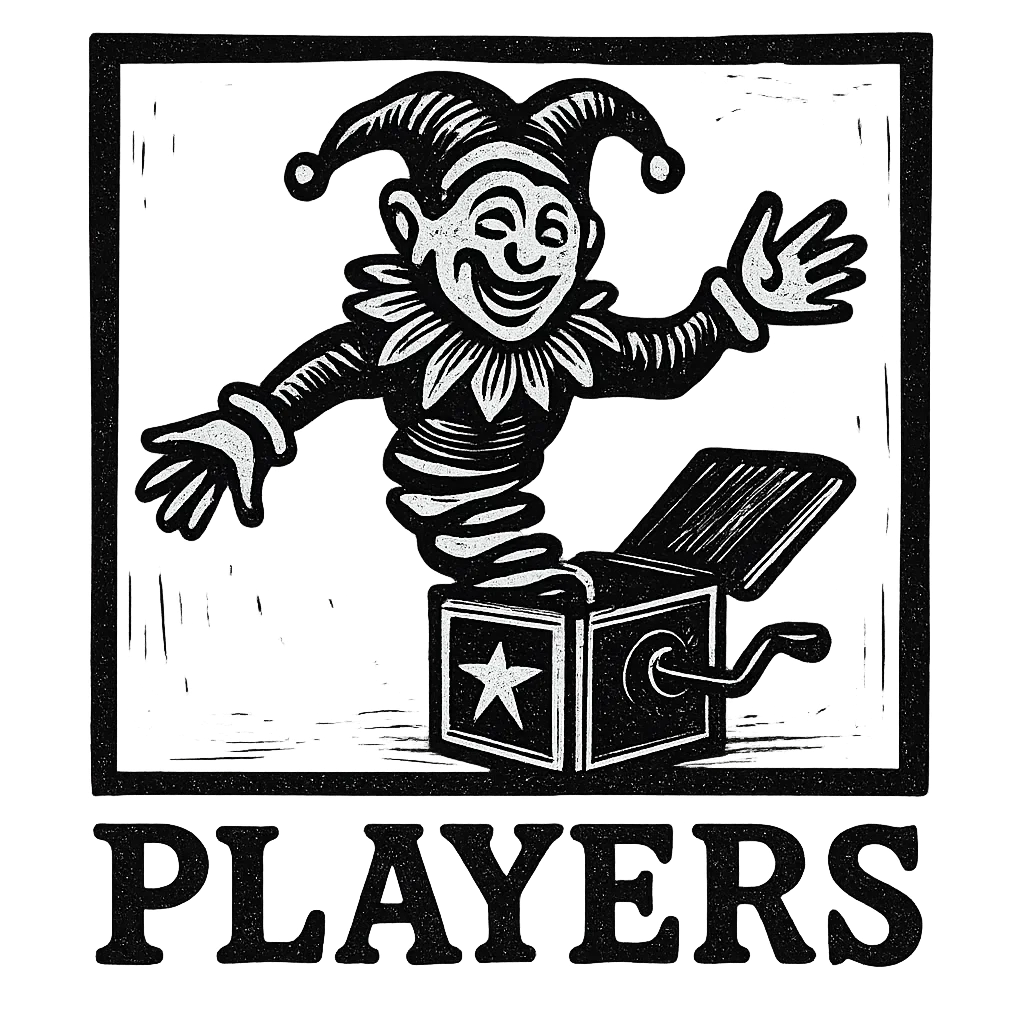The Chime of The Quickened:
A Diary from the Margins
(1962–64)
From the papers of S.A. Lorry, recovered posthumously from a locked desk in Clerkenwell, 1981. Reproduced here in the order recovered, incomplete, nonconsecutive, and unreliable.
May 3rd, 1962 – Soho
Heard them again tonight. Third time this week. No coincidence: the city is a grid of echoes, and they reverberate on frequencies unmarked by ordinance or sense.
The Get Quick played The Jester’s Cup, under the clatter of gin-sopped teeth and steel-rimmed spectacles. And yet when Mitchell Joy struck the downbeat the room fell hollow, as though evacuated of its bones. That tone he gets—like brass pressed through gauze, a mummy’s claw, the dying cough of a calliope. Lord Kevorkian loomed in the corner shadows, brilliant but very drunk looking Siamese bird on his arm, smoking the wrong end of a Sobranie.
I do not know why they permit me entry. But I suspect something in me responds to their charge. Perhaps they can see my eyes attune as I enter. I feel frequencies in the lining of my coat.
August 9th, 1962 – Kensington
Coco LeBree was photographed at Raffles last week with three young men from France’s Musique Concrète bureau, all wearing ceramic flowers and orange tinted goggles. I watched from the opposite balcony. She saw me, I’m sure. One of the men carried a briefcase with the letters “R.S.S./BARDOS” etched into its brass plate.
Later, I followed a TGQ roadie through an alley by the Wilton Arms. He dropped a note—accidentally or not, I do not know. It read:
“The R.E.C. has sanctioned two of the new tracks for Vault Listening. The greenroom will be scrubbed for signature drift. Expect low-end agitation.”
Vault Listening. Again that phrase. I’ve begun dreaming about being trapped in an endless underground labyrinth.
February 4th, 1963 – Lüneburg
Germany is louder than the UK, but only at night. Caught a small showcase in a former observation tower turned gallery.
Erik Evol played without shoes. It appeared as if he had a power jack in one of his ankles, but I could not be sure. There were two feedback loops running simultaneously, yet no amplifiers in sight. I believe Lord Kevorkian was recording directly to the glass. The rumor is he has developed a method of magnetic etching on sandblasted panes, which he calls “sublimation dubbing.”
Three audience members fainted. One vomited unknown coins. The local paper chalked it up to “a unique distortion event.”
April 30th, 1963 – Liverpool
They played a secret set after The Marquee. Invitation-only. My pass was forged, but no one checked. I heard “Blight Carnival” for the first time—never released, never recorded. Mitchell screamed through a child’s toy megaphone for two minutes while Coco detuned the bass into silent intervals. This music was unmusical. It was geometry made air, and it should not have worked. It was strangely catchy as a fever in hell.
Each consecutive performance is feeling more and more like a preparation.
I feel myself changing. I have not slept more than two hours in a week, yet my teeth feel stronger, I think they are growing.
December 13th, 1964 – Notting Hill
I have traced the loops. London is patterned after something older. Churches where their van has parked line up to form a sigil not unlike a cochlea. Some of their lyrics—especially in the bridges (a pun? an odd in-joke of the band?)—are perfectly syllabic palindromes, when sung backwards or was it Portuguese. Or was that another dream?
I’m convinced that The Get Quick is an encoding mechanism, an audio transmission from an unreal (or, at least, as of yet, un-manifested) future. Lord Kevorkian is either a medium or a map. Or a counterweight to something we haven’t met yet.
“If you want to change the world,” Evol once famously murmured in a televised interview, “you only need to tune it differently.”
I will follow them into the grave if need be.
But first: The Brighton tapes.
October 17th, 1962 – Notting Hill
I passed Erik Evol on Pembridge Crescent just after dusk. He wore a rain-spotted lemon velvet jacket and a gin-soaked grin, walking hand-in-hand with a silent woman whose eyes refused to reflect light. I slowed behind them. He spoke in phrases with no vowels, syllables punched from the throat like coins dropped into water. I jotted down what I could hear:
“Rkn. Sthr mnth. Glmr glss. Lmnl...“
Later, I consulted Father Bexley’s Glossary of Phonic Entanglements. Only one phrase resembled those tones:
“Rakan Sutra Monotone. Glamour Glass. Liminal.”
I saw the phrase again—scratched into the wet paint of a construction hoarding near Ladbroke Grove. I saw no other mark, no place of purchase. No hand had touched it.
March 1st, 1963 – Isle of Dogs
The band recorded a session at an abandoned dockside warehouse, according to a whispered tip from a girl called Petra, who claimed she once cleaned reed mouthpieces for the London Philharmonic. Lord Kevorkian had the place sealed with blackout drapes and military-grade soundproofing. Five microphones used, all ungrounded.
An electrical fire started and then reversed itself as soon as the band began to play.
The resulting tape was named The Tyranny of Style. I have not heard it. I have seen it: a reel canister with no spindle, sealed in green wax, bearing an emblem resembling a distorted ear with the ridges of a fan behind it, or perhaps symbolic audio signals, or possibly an amphibious gill.
They say the playback can only occur under conditions of total temporal inertia. One room in Basel is capable. One technician in Trieste is rumored to recall the tone index.
July 23rd, 1963 – Amsterdam
A club called De Glazen Vogel—no sign above the door, only a broken mannequin head suspended by fishing wire. Inside: mirrored walls, slow jazz warped through ring modulators, and a faint pulse like a heart outside the body. The Get Quick appeared unannounced, played three songs, and vanished before the crowd clapped.
I met a man at the bar who said he worked for “the Institute.” He asked if I believed in binaural dissonance as a weaponized ideology. I said yes, of course. He nodded and gave me a square of paper that simply read:
“LOW END DOCTRINE; LEFT HAND.”
When I touched the paper, it was warm. It felt like skin.
November 11th, 1963 – Battersea
They’ve changed the locks at the BBC. I’ve seen at least three technicians wearing identical bandages around their necks, tight as collars. Lord Kevorkian hasn’t been seen since the Berlin broadcast, but his driver—known only as “Linseed”—was spotted disposing of four broken guitar pedals into the Thames. All four still humming, creating an unknown tone, the closest associate perhaps being an E♭ chord. (C♭, once submerged.)
Coco sang a wordless hymn in a minor cathedral scale. The resulting lattice of harmony caused localized weather inversion. A child began speaking in tongues, or French. Mitchell handed her a coin and she shut right up. Her mother later claimed the coin was a U.S. nickel, minted in 1985.
There is something unfolding in the margins of the songs, some kind of acoustic architecture that demands occupation. A sonic scaffolding. I will enter it, if permitted.
6 May 1962 – North Soho
The streets glisten with sleet and gin. The Get Quick perform beneath the black beams of the Harridan Club—once a Puritan bakehouse, if you read the old maps, now soaked in hashish smoke and the sour odour of overly ambitious armpits. They begin their set and I feel it again—the internal detonation, like my organs squeezing, churning, reshuffling themselves into a new pattern.
I stood by the cloakroom beside two pinched Italian aristocrats and a woman from the Home Office. I caught her mouthing along, eyes glassy: “She’s quick, she’s coming, she’s lightless...”
Coco’s bass was not plugged in, yet the notes were heard and felt. The air seemed to bend around Evol’s guitar. S. True Smith—so pale in that tailored green suit—shouted out to his lads after the first song: “Louder! Play louder! Even the graves have ears!”
The bird beside me at the bar burst into a cackling laughter.
21 June 1962 – BBC Radiophonic Workshop
Through bribery, impersonation, and subtle threats, I gain entry. Lord Kevorkian presides, robed in a grey Mac, radiating caffeine and contempt. He makes the band perform “The Grand Instantaneous” in reverse, then feeds it through a wire-tangle device he calls “The Conversant.” It squeals like a dying winch.
I overhear Kevorkian confiding to an audio technician, words and phrases something like “They don’t know,” “summoning,” and “doctrinal vibration.” I write it down, right proper in the moment, but the words later vanish from my notebook. I find only a spiral helix drip-drawn in red wax.
12 December 1963 – Down Street Station, Mayfair (Disused)
A private gig, I was told. Invite-only. The stairs still stink of coal ghosts and the war. No power, no lights save the mercury arcs bolted to the ceiling. The Get Quick emerge from the tunnel mouth, amplifiers on dollies, pushed by what I swear were mute children in wax masks.
They perform only one piece, a 37-minute drone titled “The Mirror is a Stammering Device.” I weep. I see Erik Evol crawling across the ceiling. He—or at least his double—is, at the same time, fronting the band.
Afterward, Mitch hands out leaflets of nothing, blank paper he insists contains lyrics visible only in total silence. I attempt this back at my lodgings in Wapping. I hear whispers for days. I cannot determine if they are inside the flat or wafting in from the Thames.
7 March 1964 – Whitechapel, near the Site of the Ten Bells
I attempt to chart the ley lines of The Get Quick’s movements: studios, clubs, flats, even film shoots (the Ranq Short never aired). The pattern forms an inverted lyre across the city.
I find Mitchell Joy arguing with a man dressed as a 17th-century executioner in the ruins of an old gin distillery. The man hands Joy a lock of someone’s hair. Joy says, “We’re not that band anymore.” I believe he is lying.
That night I dream in 78RPM. A crowd chants: “Sound precedes matter. Rhythm makes kings.” Cannot make head nor tail. When I awake, I fear my clock is ticking backward. Then I fear I am not awake at all.
23 April 1964 – Carnaby Street (Alchemical Phase)
They are stars now. Girls in tear-striped mascara scream beneath neon signs. Mitchell photographed with Ava Gardner and a tiger cub. Coco holds court at Le Dossier, draped in translucent vinyl. Rumors abound that S. True Smith never sleeps—he is glimpsed simultaneously at BIBA and at the Admiralty. There are whispers of “mirror twins” and “the flesh network.”
But something curdles beneath the glamour. Their new music seems more “channeled” than “composed,” as if decrypted from unknown sources. Lord Kevorkian’s tipsy ladybird claims the band are in contact with “the sound gills behind the ear.”
In Hampstead, a man jumps from a rooftop holding a reel-to-reel copy of The Get Quick’s “A Tendency to Vanish.” His final words, per police report:
“I was searching for the band. For the truth. I found the doorway.”
5 May 1964 – Camden Town
First rumours of The Choir of Exile surface—anonymous leaflets left on wet benches and public lavatories: “The Harmonies Have Turned Against Themselves. Do Not Follow The Get Quick.” One pamphlet depicts the three band members fused at the torso, mouths open in a soundless scream, eyes painted black.
I inquire at St. Eustace’s Church (now a coffee shop / jazz venue), where the leaflets seem to originate. A thin man in full priest’s vestments, says:
“The Choir left London when the towers rose. But The Get Quick are bringing out the song in them again.”
I begin to record his words in my notebook, but from the corner of my eye I notice that below his cassock he is wearing Chuck Taylor Converse All-Stars. Black with soot. Odd. He suddenly vanishes as I write. The undertow of his vortex nearly ripping his words from my mind.
Fortunately I am skilled in shorthand.
